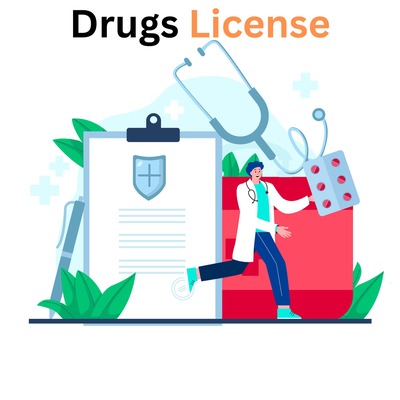
If you’re in the pharmaceutical industry or planning to start a business in the manufacturing, sale, or distribution of drugs, obtaining a drugs license is a mandatory legal requirement. Without proper authorization, conducting any activity related to drugs is not only illegal but also punishable by law.
In this comprehensive guide, we’ll cover everything you need to know about drugs license authorizations, including the types, application processes, regulatory frameworks, and essential compliance factors.
A drugs license is an official authorization granted by the relevant regulatory authority (such as the FDA, CDSCO, or state-level drug controllers) that allows an individual, business, or organization to manufacture, sell, distribute, or import drugs in compliance with the applicable drug laws.
The issuance of a drugs license ensures that only safe, effective, and high-quality medicines are made available to the public, preventing the distribution of substandard or counterfeit drugs.
The regulation of drugs in India is primarily governed by:
The Central Drugs Standard Control Organization (CDSCO) and the State Drug Control Departments monitor and enforce compliance with these laws.
To operate in the pharmaceutical sector, businesses need to apply for specific types of licenses depending on their activities. The most common types include:
1. Manufacturing License
A manufacturing license is required to manufacture allopathic, ayurvedic, or homeopathic medicines. It is issued by the State Licensing Authority (SLA).
2. Wholesale Drugs License
A wholesale license is mandatory for the sale and distribution of drugs in bulk to retailers or institutions.
3. Retail Drugs License
A retail license authorizes the sale of drugs directly to end consumers.
4. Import License
An import license is required to import drugs, active pharmaceutical ingredients (APIs), and cosmetics into the country.
5. Loan License
A loan license is granted to an applicant who does not own manufacturing facilities but wants to manufacture drugs using a third-party licensed manufacturer.
6. Restricted Drugs License
A restricted drugs license is required for retailers selling over-the-counter (OTC) drugs in rural and semi-urban areas.
To get a drugs license, you must follow the procedures laid out by the relevant state and central authorities. Here’s how:
Applying for a drugs license involves multiple steps, and strict adherence to guidelines is necessary. Below is a step-by-step guide:
Understand the specific type of license required for your business activity. This could be a manufacturing, wholesale, retail, or import license.
Prepare the necessary documents, including:
You can submit your application through:
A Drug Inspector will conduct an inspection of the premises to ensure compliance with infrastructure, equipment, and personnel standards.
Once the inspection and document verification are complete, the authority will issue the drugs license within 30-60 days.
To maintain compliance with the terms of a drugs license:
A drugs license application may be rejected due to:
Obtaining a drugs license is a crucial step for anyone involved in the pharmaceutical business. By understanding the types of licenses, application procedures, and compliance requirements, you can ensure seamless business operations while adhering to legal standards.
If you’re planning to enter the pharmaceutical sector, start by determining the correct license category and follow the guidelines to obtain the necessary authorization. Always stay updated with regulatory changes to maintain compliance and uphold the highest quality standards in the industry.
To learn more about drugs license in Haryana, Gujarat, Maharashtra and Uttar Pradesh we recommend you to visit Metacorp as it solve legal and compliance issues of new and established businesses.





We are the pioneers in offering environmental consulting services to our patrons, giving us the first mover advantage & keeping us ahead of our competitors.
Very experienced in filing, monitoring & issuance of CDSCO Certificates, Drugs Licensing, Environmental Impact Assessment, AERB certificates, Pollution Control Board CTE & CTO, Waste Management Authorization from State Pollution Control Boards, Fertilizers & Insecticides Licensing
